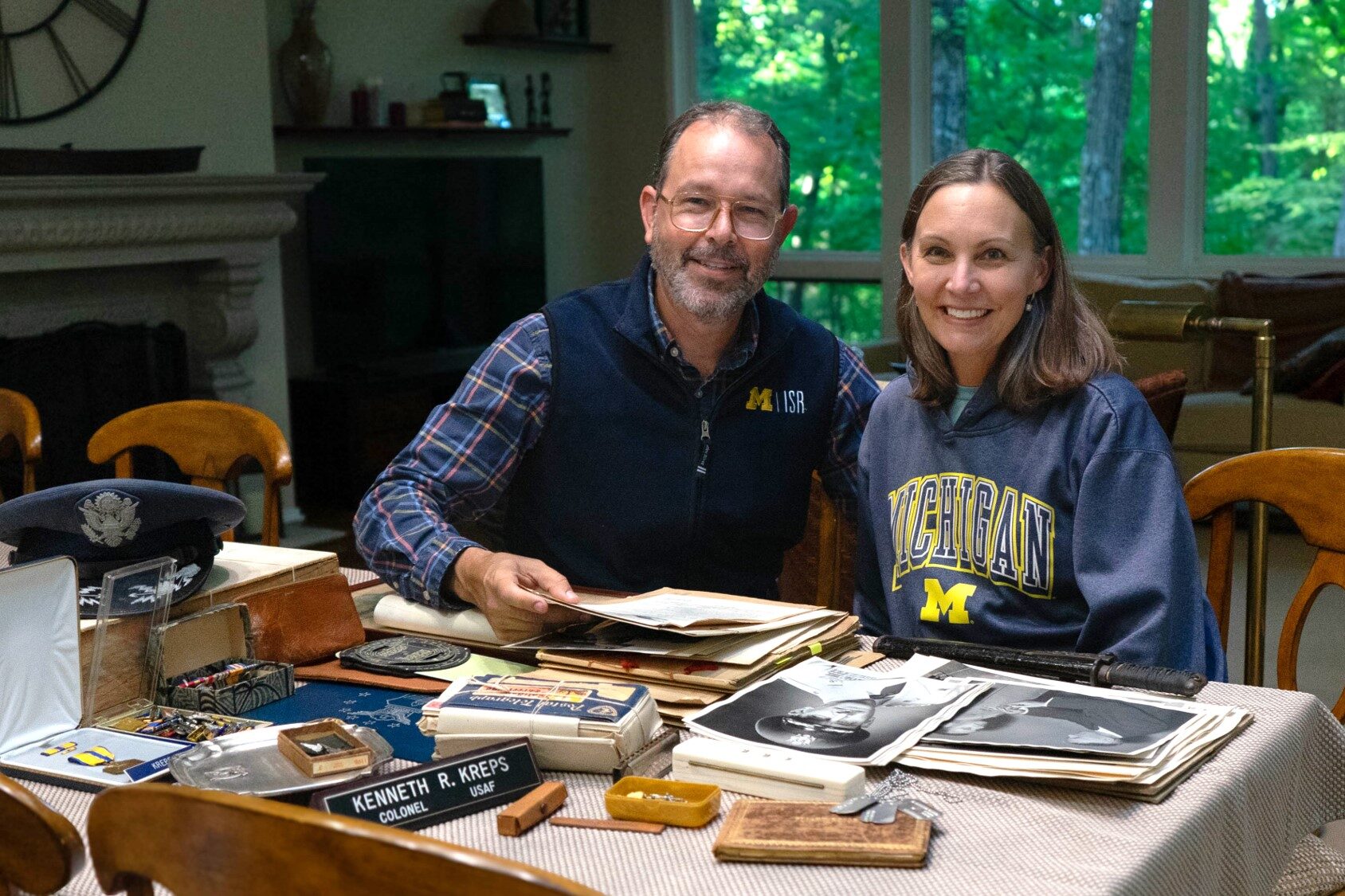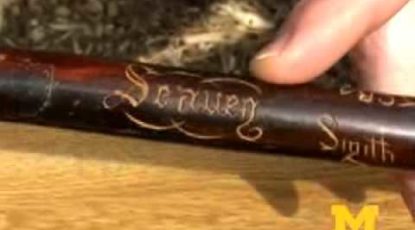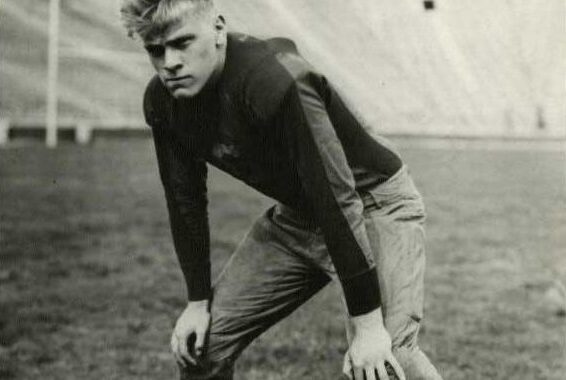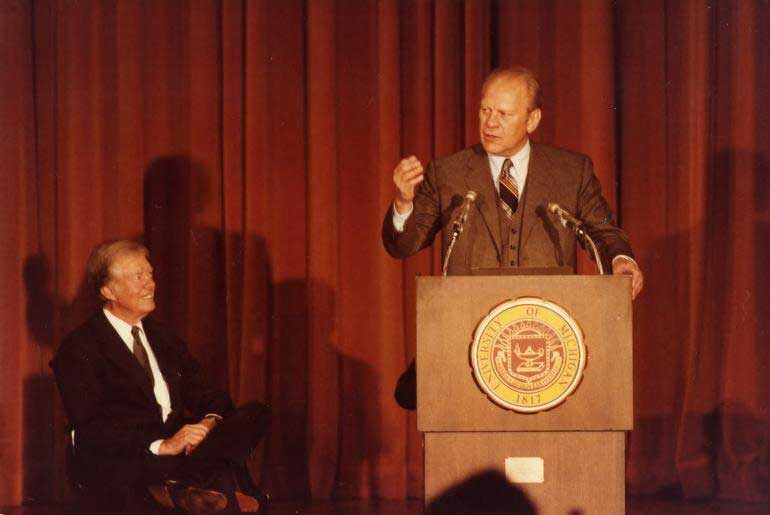A family’s quest for a hero’s ‘war chest’

From undisclosed honors to covert operations, the valiant military exploits of Colonel Kenneth Kreps were veiled in secrecy until a fateful discovery by his descendants. Witness the unveiling of a World War II hero’s saga as his family unpacks a long-lost treasure trove of historic memorabilia.
-
An archaeological mystery in a half-ton lead coffin
In the ruins of a city that was once Rome’s neighbor, archaeologists last summer found a 1,000-pound lead coffin. Who or what is inside is still a mystery, said U-M’s Nicola Terrenato, who leads the largest American dig in Italy in the past 50 years. “We’re very excited about this find. Romans as a rule were not buried in coffins to begin with and when they did use coffins, they were mostly wooden. There are only a handful of other examples from Italy of lead coffins from this age.”
-
Artist of the Chill and Canyon
Lawrence Kasdan, director of ‘The Big Chill,’ ‘Grand Canyon’ and other classics, recalls his U-M days.
-
The flap over ‘Flaming Creatures’
The 1967 on-campus screening of the experimental film epitomized the era: controversy over content that was either “art” or “filth,” battles over academic freedom and angry protests by students.
-
Michigan is Movie Land
The tax incentives that have made Michigan a movie-making hotbed are also transforming U-M. Film crews are shooting on campus, bolstering the local economy and giving U-M students a reason — and an opportunity — to remain, work and learn in Michigan.
-
Hand – carved history
For generations of Michigan alumni, senior canes unlocked the vaults of memory.
-
Chemistry lesson
To save its season, U-M’s ice hockey team had to unify itself around an unlikely hero.
Columns
-
President's Message
Eureka! A look at the knowledge ecosystem
With $1.86 billion in research funding, U-M is leading the way in everything from energy solutions to artificial intelligence. -
Editor's Blog
A crisis by any other name…
You know what they say about opportunity. It knocks but once before the door slams shut. -
Health Yourself
So much for farm to table … We’ve got lab to table now
Who's ready to eat chicken that scientists 'hatched' in a lab and not from an egg? -
Climate Blue
How to keep your head above uncharted waters
Ricky Rood says goodbye to Floodtown as he guides us through the changing climate.
Commemorating an exceptional presidency
Fifty years ago, at a time of great division and turbulence in the U.S., Gerald R. Ford was sworn in as the 38th president of the United States. President Ford’s legacy is very much alive at the Ford School of Public Policy. This slideshow is inspired by the school’s recent tribute, “A life of public service,” in the Spring 2024 issue of State & Hill magazine. As noted by the editors, the values that distinguished Ford remain highly relevant to policy students today: his lifelong commitment to principled public service, his integrity, and his ability to connect across differences to forge consensus.

















